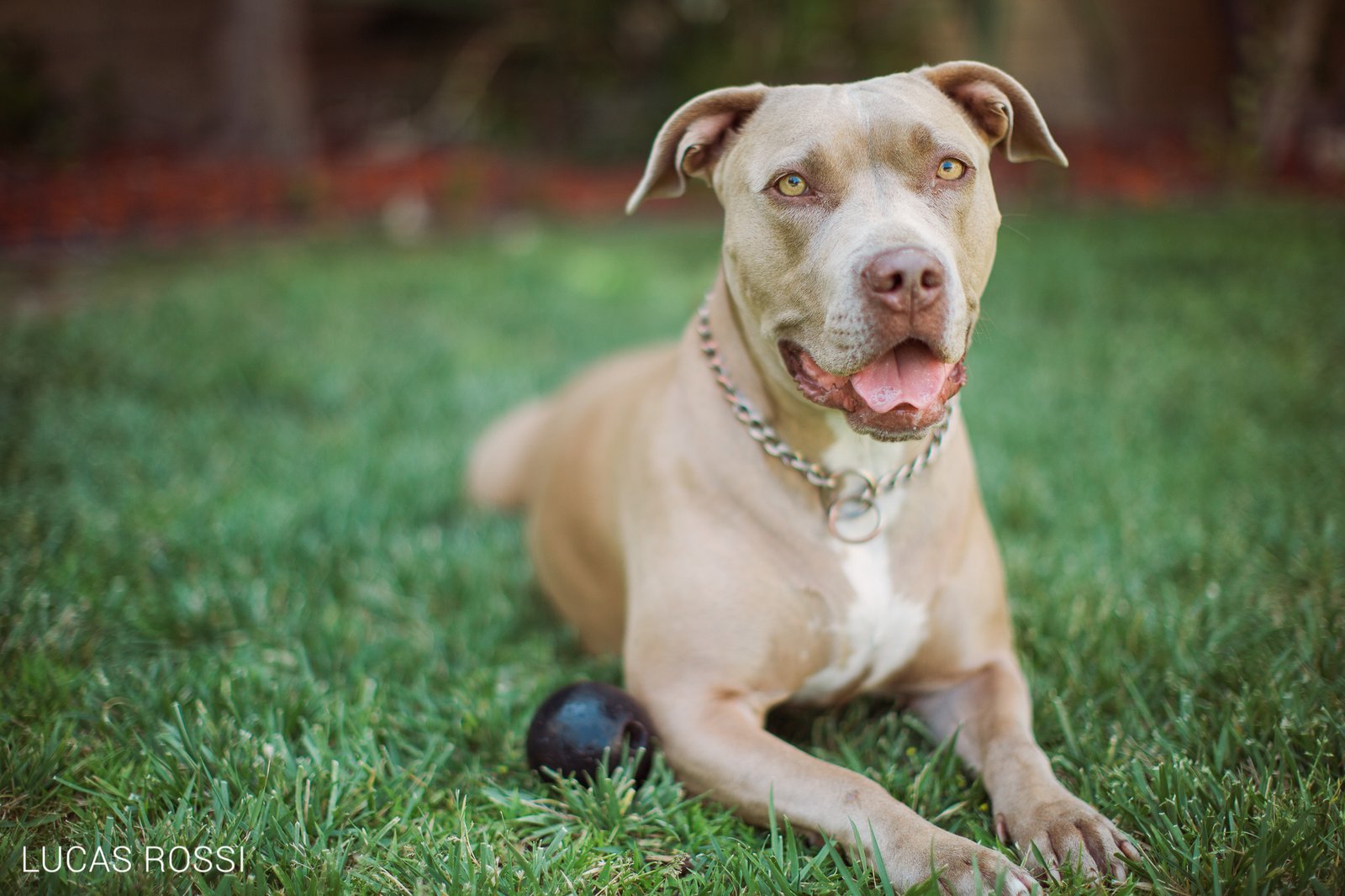
Pitbulls: Debunking Common Misconceptions and Stereotypes
Pitbulls are often misunderstood and unfairly labeled as dangerous or aggressive dogs due to widespread stereotypes in the media and society. However, these misconceptions don’t accurately reflect the true nature of the breed. Pitbulls are loyal, affectionate, and make wonderful pets when given proper care and training. In this article, we’ll address some of the most common myths about Pitbulls and reveal the truth behind their reputation.
1. Myth: Pitbulls Are Naturally Aggressive
The Truth:
One of the most persistent myths about Pitbulls is that they are inherently aggressive. However, aggression is not a breed-specific trait—it’s a result of individual temperament, environment, and training. Like any dog, Pitbulls can display aggression if they are poorly socialized, mistreated, or not properly trained.
What You Can Do:
- Socialize your Pitbull early on with other animals and people to ensure they develop positive behaviors.
- Provide consistent training with positive reinforcement, focusing on behavior management.
- Pitbulls can be incredibly loving and gentle when they are raised in a positive environment with responsible ownership.
2. Myth: Pitbulls Have a Locking Jaw Mechanism
The Truth:
Another common misconception is that Pitbulls have a special “locking” jaw that makes them more dangerous. This myth is not based on scientific facts. All dogs, including Pitbulls, have similar jaw structures, and there is no evidence that Pitbulls possess a unique locking mechanism. Their strength comes from their powerful bite, but this is true of many breeds, not just Pitbulls.
What You Can Do:
- Understand that any breed can cause harm if provoked or improperly trained. Proper handling and training are key to ensuring safe interactions with all dogs.
- Focus on responsible dog ownership and provide appropriate toys and outlets for your dog’s energy to reduce the risk of destructive behavior.
3. Myth: Pitbulls Are Only Good for Fighting
The Truth:
Pitbulls have been historically associated with dog fighting due to their muscular build and tenacious nature. However, this image is outdated and inaccurate. Pitbulls were originally bred as working dogs and were used for farm tasks, guarding, and even companionship. Their strong, confident personality makes them excellent family pets, working dogs, and therapy dogs, not just fighters.
What You Can Do:
- Focus on their potential as versatile dogs. Many Pitbulls excel in agility training, obedience competitions, and as therapy dogs due to their intelligence and eagerness to please.
- Educate others about the positive traits of Pitbulls and show how they can thrive as well-adjusted pets with the right environment.
4. Myth: Pitbulls Are Dangerous Around Children
The Truth:
While any dog can potentially display aggressive behavior, there is no evidence to suggest that Pitbulls are more dangerous around children than other breeds. In fact, Pitbulls are known for their loyalty and affection, and many are gentle and patient with children. However, like all dogs, they should be supervised around children to ensure safety for both parties.
What You Can Do:
- Teach children how to interact with dogs respectfully and safely.
- Ensure that your Pitbull is properly trained and socialized with children from a young age.
- Always supervise interactions between dogs and young children, regardless of breed.

5. Myth: Pitbulls Are Difficult to Train
The Truth:
Pitbulls are often labeled as difficult to train, but this is far from true. They are highly intelligent, eager to please, and can be trained with consistent, positive reinforcement. Pitbulls respond well to firm but kind training methods and enjoy activities that challenge their mind and body.
What You Can Do:
- Use positive reinforcement training techniques, such as treats, praise, and toys, to motivate your Pitbull.
- Start training early and be consistent with commands and routines.
- Engage in activities like obedience training, agility, or scent work to keep your Pitbull mentally and physically stimulated.
6. Myth: Pitbulls Are Not Safe to Own in Urban or Family Settings
The Truth:
Pitbulls are adaptable dogs that can thrive in a variety of environments, including urban and family settings. They are often excellent companions for active families, as they have plenty of energy and enjoy physical activities. Their need for socialization and training is paramount, but with proper care, Pitbulls make great pets for families of all sizes.
What You Can Do:
- Provide your Pitbull with regular exercise and mental stimulation to keep them healthy and happy in an urban environment.
- Create a safe and secure living space, and make sure your dog is well-trained to avoid any behavioral issues in a family setting.
- Choose an environment where your Pitbull will have plenty of opportunities for social interaction and physical activity, such as dog parks or nearby walking trails.
7. Myth: Pitbulls Are a Danger to Other Animals
The Truth:
While some Pitbulls may have a higher prey drive due to their strong instincts, many Pitbulls are perfectly capable of living peacefully with other animals, including dogs and cats. Early socialization plays a major role in how a Pitbull will interact with other animals. A well-socialized Pitbull can be a loving companion to pets of all kinds.
What You Can Do:
- Start socializing your Pitbull from a young age with other animals, including dogs, cats, and small animals.
- Provide supervision when introducing your Pitbull to new animals, and use positive reinforcement to reward calm behavior.
- Make sure your dog’s needs are met, such as regular exercise and mental stimulation, to reduce the likelihood of negative behaviors toward other animals.
8. Myth: Pitbulls Are Untrustworthy and Unpredictable
The Truth:
Pitbulls, like any dog, are individuals with their own personalities. Their behavior is largely shaped by their upbringing, environment, and training. While they have a strong reputation for loyalty and protectiveness, they are not inherently untrustworthy or unpredictable. Proper socialization, training, and care can help ensure that your Pitbull behaves reliably and predictably.
What You Can Do:
- Focus on positive interactions and build a strong bond with your Pitbull through consistent care and attention.
- Avoid harsh or punitive training techniques, as these can damage the trust between you and your dog.
- Be patient and understanding with your Pitbull, especially if they have had negative experiences in the past.
Conclusion: The Truth About Pitbulls
Pitbulls are often unfairly labeled and misjudged due to negative stereotypes and misconceptions. In reality, they are loyal, loving, and intelligent dogs who can make wonderful pets for the right owners. The key to raising a happy, well-behaved Pitbull lies in responsible ownership, proper training, and early socialization. By debunking these myths and understanding the true nature of Pitbulls, we can help change the narrative and ensure they are given the love and respect they deserve.
If you are considering adopting a Pitbull, make sure to do your research, and be ready to provide the care, attention, and training they need to become a well-adjusted and happy member of your family.







